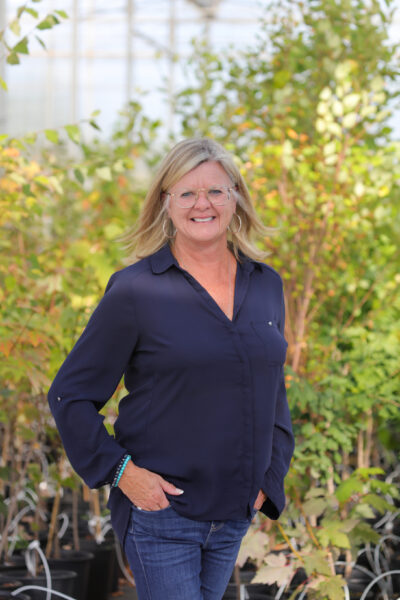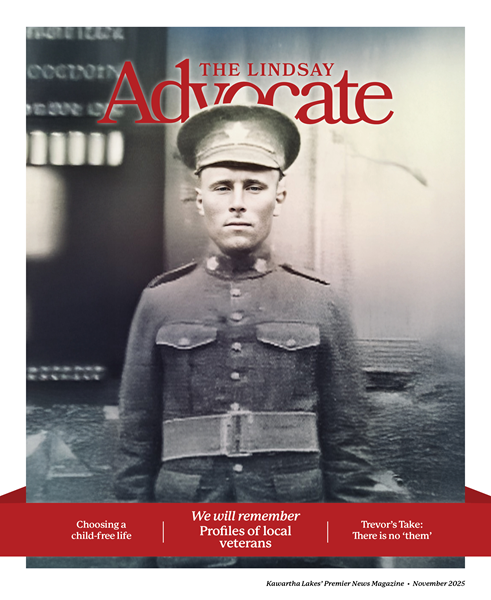Kawartha Lakes council commits to culture of respect

The Eastern Ontario Wardens’ Caucus was recently held in Ottawa and one of the major topics of this year’s conference was respect in politics.
The caucus made a commitment to the Elect Respect campaign which is a province-wide initiative that advocates for a safe, respectful and inclusive democratic environment for candidates, elected officials and public servants.
Ward 8 Councillor Tracy Richardson then brought forth a memorandum to council under the Elect Respect name, which council unanimously supported.
Richardson has faced death threats and harassment since she first ran for council in 2018. “To capture how it feels to be harassed or receive death threats it is buckling and unsettling, you want to run and hide but this is not what this business is about – it’s about being available and wanting to do what is best for your community.”
She is a strong believer in holding those making these comments accountable and ensuring that council remains a safe space for everyone which was part of what made her bring this motion forward.
The motion calls for treating others with respect in public and in private (including online); rejecting harassment, abuse and personal attacks and calling it out when it happens; focusing debates on ideas and policies – keeping individuals and personal life out of discussion; urging the authorities to protect elected officials from threats and abuse; and leading by example with integrity and respect and holding each other to account.
“We are committing to leading by example and showing the community how we can respectfully disagree on items, but recognize, that at the end of the day, we are all working toward the same goal, keeping Kawartha Lakes moving forward in the best way possible,” Richardson said.
Ward 5 Councillor Mark Doble says he’s grateful that he hasn’t had to deal with much disrespect since being elected in April. “If you want to be treated with respect you should also expect that you need to show and give respect to others.”
He says that while he has met with disgruntled constituents, he goes to them showing respect and empathy. “Quite often you have to meet with somebody and you’re going to have to tell them something that you know isn’t going to make them happy.”
Doble acknowledges that abuse and disrespect in politics is a very real thing, as Richardson has faced, even if he hasn’t experienced it yet as a newly elected representative.
As for council itself, he’s felt nothing but safe and comfortable in his new role. “It starts at the top, and Mayor Elmslie has been very supportive, very encouraging and very welcoming. I find that his door is always open.”
Both Richardson and Doble also point to how councillors have a code of conduct to follow, as mandated by the province. The code covers a variety of expectations that councillors are expected to follow such as in what circumstances they’re allowed to accept gifts, the usage of information they gain through their official duties. It also covers things such as refraining councillors from publicly criticizing other councillors or staff members and respecting that councillors will have different views on the same issue.
“This framework isn’t just symbolic, it’s enforceable. If a member breaches the code, there’s a process to investigate and address it,” Richardson said.
Richardson hopes that by bringing the conversation of respect to the forefront, it can help everyone better understand that at the end of the day councillors are humans too. “As a councillor you know that you will not always being popular and you understand what you sign up for but when it affects your family in public places it really deflates your community commitment.”





This story disturbs me because of my own experience with menace in our community and because of the impact initiatives like Elect Respect might have on our civil society. I moved to Lindsay in 2003 on the run from reprisal for making complaints to the Ontario Human Rights Commission and to the Criminal Injuries Board both of which I “won”. That is to say, I was paid token compensation and those violating the law were sanctioned and the CEO and a director of a multinational corporation who were found to have violated the Human Rights Code were fired. But then the reprisal began and because neither city council nor police would help me, I had to run. The reprisal continued in Lindsay – including in-my-face and in-public death threats and assaults police refused to investigate – until former RCMP Commissioner Paulson figured out someone with security clearance had planted falsehoods in my personal records to flag me (and thus blacklist me) at CPIC. During that time, I tried to build new friendships and contribute to my community but the City wrongly accused me of posing an imminent threat of violence to the members of a Municipal Committee I had been appointed to. They violated section 11(d) of the Constitution Act by denying me access to the evidence they relied on to do that and by denying me the opportunity to call my own witnesses and submit my own evidence in self defence. It was a falsehood and it hurt me so deeply that I made an application for a judicial review and the court found in my favour. But even after that, although my ward Councillor, Pat Dunn, did his very best before he lost his seat in the last election, City Council doubled down, wrongly accused me again in public, made more false allegations on the record, and refused to remove that damaging content from the City’s youtube channel. It mobilized bias against me in the community that persists to date and that continues to put my safety at risk. In my view, such action is the very height of disrespect and, in light of such behaviour that I can only imagine has also affected other constituents, bemoaning the disrespect of constituents is the very height of hypocrisy. I do not think council or councillors have any right to ask constituents for respect when they do not respect us back, when they do not respect the facts, and when they do not apologize when they are found, by a court of law, to be wrong.